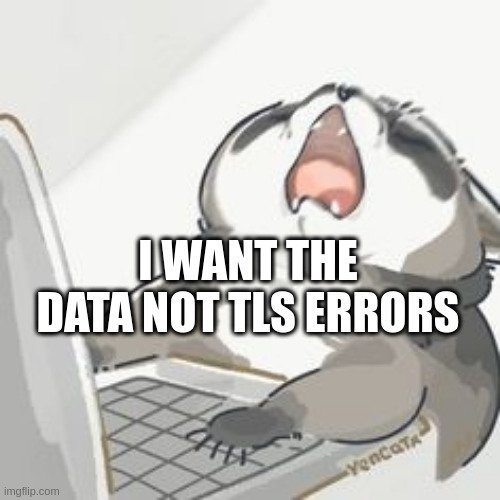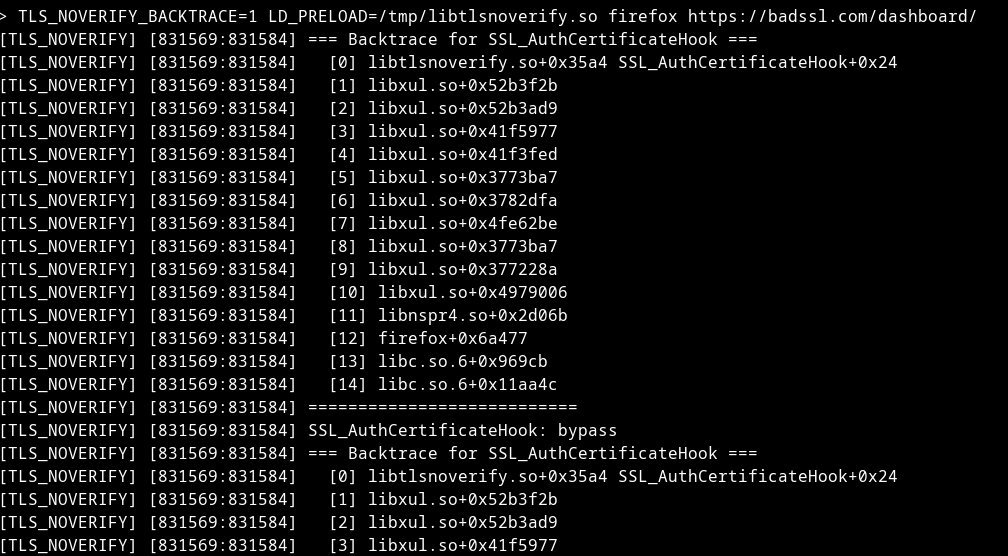A new open-source tool leverages Linux's LD_PRELOAD mechanism to universally bypass TLS certificate validation across OpenSSL, GnuTLS, NSS, mbedTLS, and wolfSSL implementations. This breakthrough simplifies critical security research on embedded systems and proprietary applications where traditional methods fail. Discover how it works and why it respects critical security boundaries like setuid protections.
Security researchers analyzing network traffic in embedded devices and industrial systems routinely hit a frustrating wall: properly implemented TLS certificate validation. Applications built with OpenSSL or similar libraries correctly reject intercepted traffic with CERTIFICATE_VERIFY_FAILED errors, halting legitimate research. Traditional bypass methods—binary patching, Frida instrumentation, or complex CA setups—are often impractical, time-consuming, or impossible with proprietary binaries.
Enter tls-preloader, an elegant solution using Linux's LD_PRELOAD mechanism to dynamically intercept and neutralize certificate verification functions. By loading before standard libraries, it hijacks critical functions like OpenSSL's X509_verify_cert, GnuTLS's gnutls_certificate_verify_peers3, and NSS's CERT_VerifyCertificate, forcing them to return "success" regardless of certificate validity.
 The tool exploits Linux's dynamic linker behavior to intercept TLS library calls (Source: f0rw4rd)
The tool exploits Linux's dynamic linker behavior to intercept TLS library calls (Source: f0rw4rd)
How the Dynamic Linker Hijack Works
When LD_PRELOAD=./libtlsnoverify.so is set, the Linux dynamic linker (ld.so) loads this library first. Symbol resolution follows a "first match wins" rule:
%%{init: {'theme':'dark'}}%%
graph TD
A[Program Starts] --> B[ld.so Activates]
B --> C{LD_PRELOAD Set?}
C -->|Yes| D[Load libtlsnoverify.so FIRST]
D --> E[Load Standard Libraries e.g., libssl.so]
E --> F[Resolve Symbols: libtlsnoverify wins!]
F --> G[Certificate Checks Always Succeed]
style D fill:#4CAF50,stroke:#fff,stroke-width:2px
style F fill:#4CAF50,stroke:#fff,stroke-width:2px
Key Features & Research Applications
- Universal Support: Targets OpenSSL, GnuTLS, NSS, mbedTLS, wolfSSL, and libcurl
- Zero Configuration: No CA certs, patching, or recompilation needed
- Debug Modes:
TLS_NOVERIFY_DEBUG=1logs bypassed checks;TLS_NOVERIFY_BACKTRACE=1outputs call stacks - Critical Use Cases:
- Pentesting proprietary embedded devices (ICS/SCADA)
- Analyzing IoT device traffic
- Debugging TLS in legacy systems
- Simplifying test environments
# Bypass validation in curl
LD_PRELOAD=./libtlsnoverify.so curl https://expired.badssl.com
# Debug Firefox's NSS validation bypass
TLS_NOVERIFY_BACKTRACE=1 LD_PRELOAD=./libtlsnoverify.so firefox
 Firefox bypassing all BadSSL.com certificate checks with tls-preloader active (Source: f0rw4rd)
Firefox bypassing all BadSSL.com certificate checks with tls-preloader active (Source: f0rw4rd)
Technical Boundaries: Why It Won't (and Shouldn't) Work on sudo
Crucially, tls-preloader respects Linux's security model. Privilege-elevating binaries like sudo trigger the kernel's AT_SECURE flag, which:
- Ignores
LD_PRELOADwith absolute paths (e.g.,/tmp/libtlsnoverify.so) - Restricts relative paths to system directories (
/usr/lib) - Requires libraries to be root-owned and setuid
%%{init: {'theme':'dark'}}%%
graph LR
A[setuid/setgid Binary] --> B[Kernel Sets AT_SECURE=1]
B --> C[ld.so Sanitizes Environment]
C --> D[Block LD_PRELOAD from User Paths]
C --> E[Ignore LD_LIBRARY_PATH]
D --> F[Only Load from /usr/lib /lib]
F --> G[Library Must Be Root-Owned + setuid]
style B fill:#FF5252,stroke:#fff
style D fill:#FF5252,stroke:#fff
This ensures attackers can't trivially hijack privileged binaries — a deliberate security boundary the tool preserves.
Limitations & Ethical Considerations
- Statically Linked Binaries: Ineffective against Rust's
rustls, Go binaries, or Chrome's BoringSSL - High-Level Languages: Java/.NET use managed TLS stacks unaffected by LD_PRELOAD
- Ethical Use: Designed exclusively for authorized security research. Bypassing TLS validation in production systems violates security fundamentals.
The Verdict
For researchers battling TLS validation in embedded environments, tls-preloader is a game-changer. It elegantly solves a pervasive problem using core Linux dynamics while conscientiously respecting critical security boundaries. By eliminating hours of custom bypass work, it lets researchers focus on actual vulnerabilities — not circumventing encryption safeguards.
Tool & Source: github.com/f0rw4rd/tls-preloader
Source: f0rw4rd.github.io

Comments
Please log in or register to join the discussion